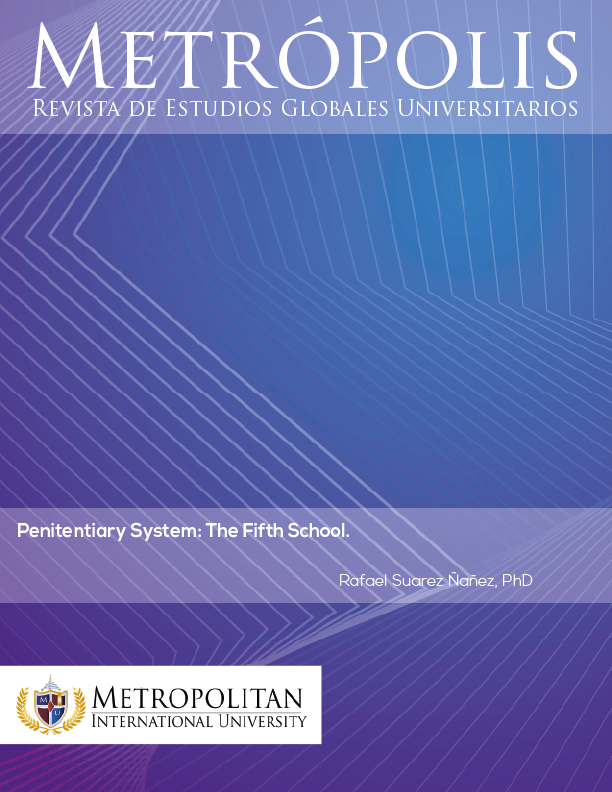Penitentiary System: The Fifth School.
Keywords:
Education, Penitentiary Education, Penitentiary TreatmentAbstract
The present essay is based on pedagogical mesology, which assumes a position of open and flexible philosophy, on the otological, epistemological and axiological levels. Supported in conceptions of cognitive psychology, information processing, in sociocultural constructivism, the first as theory of instruction, emphasizing the learning of cognitive strategies to achieve autonomy and independence of the student, with new values, and is interested in the processes that they mediate between the learning experience and the learner's performance. Socio-cultural constructivism highlights the notion of learning as a social construction. Based on the idea that human activities take place in a cultural context, they are mediated by symbolic systems, that is, it goes to the genesis of the learning phenomenon to study it in its development, and not only as a final product, with an emphasis on the origin social of the psychological phenomenon, with the proposal that the superior mental function and human action are measured in instruments (tools or signs) in which language stands out. The postulate that psychological phenomena are the unit of analysis of a methodological nature that allows mediated action. Where the educator reflects on his educational work, the meaning and importance of what he does, the impact it has on society and I intend to advance in this aspect. Being mesology, that scientific and reciprocal relationship between education and its environment. This approach is part of the call: Remissione Doctrine, where the inmate wants to be forgiven and the State conditions that forgiveness to the time, in which he will carry out a sanction, to be educated in values.

Downloads
Published
How to Cite
Issue
Section
License
Copyright (c) 2021 Rafael Suarez Ñañez, PhD

This work is licensed under a Creative Commons Attribution-NonCommercial-ShareAlike 4.0 International License.



